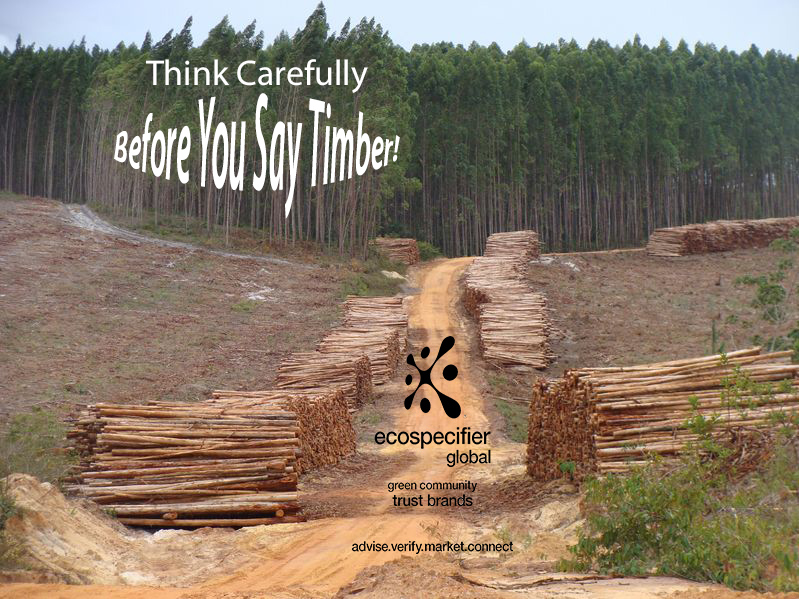Timber preservation is arguably the second most important environmental issue next to sustainably harvesting. There are many important reasons to treat wood, ranging from rot due to being constantly in moist environments, resistance from insects and fungus and just concerns for general durability due to exposure to the sun and weather. These are all important reasons, especially when you consider timber is often a staple when constructing housing and people want to protect their investment; however economic interests need not to conflict with environmental concerns. There are a number of methods used to preserve wood, some like creosote used in the past are now banned due to their cancer causing nature and others that probably should be banned i.e. ‘CCA’ treatment (and has been banned in some uses such as decking).
Chromated Copper Arsenate (CCA) is a mix of chromium, copper and arsenic designed to increase durability through the prevention of decay by fungi and bacteria and resistance to wood attacking insects. The reason it should be banned is because arsenic is a proven toxin and carcinogen. Do you really want to live surrounded by toxic fencing that can pollute the soil, be absorbed by children climbing fences, cannot be safely disposed except at a landfill, it cannot be mulched or reused and releases toxic gases if burnt? Partial or complete restriction of CCA occurs locally in Australia but also in Japan, USA, Indonesia, Sweden and Germany. Environmentally friendly alternatives often involve combining copper and organic preservatives, for example Ammoniacal Copper Quaternary (ACQ).
ACQ has recently seen an emergence primarily due to restrictions implemented on CCA. ACQ contains no high toxicity arsenic/chromium compounds and it can be both mulched and burnt with no adverse side effects. However it has a slightly higher initial cost and its availability is low but slowly improving as CCA is slowly being phased out and eliminated in certain countries. ACQ is approved for use in ‘in ground’ structural uses,
LOSP or Light organic solvent preservative is a type of timber preservation that is used for above ground uses. It typically uses a light oil like linseed oil (best) or a solvent like white spirits (high Volatile Organic Compound emissions) and a synthetic pyrethroid like permethrin.
For those who would like to utilize ACQ and similar alternatives, Ecospecifier.com.au offers a range of products that will fill your needs, an example of this can be seen in Lonza Wood’s – Wolmanized Outdoor Wood; a wood product most equipped for outdoor settings such as decks, walkways, fences and landscaping.
Explore more about the product ranges that have been eco-certified and listed by Ecospecifier, by using the Product Search Engine on Ecospecifier Global: http://www.ecospecifier.com.au
Join us in more conversations about green products and sustainability issues on our social media pages:
Follow Ecospecifier on Facebook
Follow Ecospecifier on Twitter
Follow Ecospecifier on LinkedIn
Join our Social Media Honour Roll – support the switch to green products
Like, Comment and Share our blogs and posts on your social media pages … and we will send your name out to more than 15,000 subscribers via our monthly Ecospecifier Global Newsletter.
See which stellar individuals, businesses and networks made the latest Honour Roll on Twitter and Facebook HERE We salute you in helping us educate and help more people #MaketheSwitch to #EcoResponsible products.

